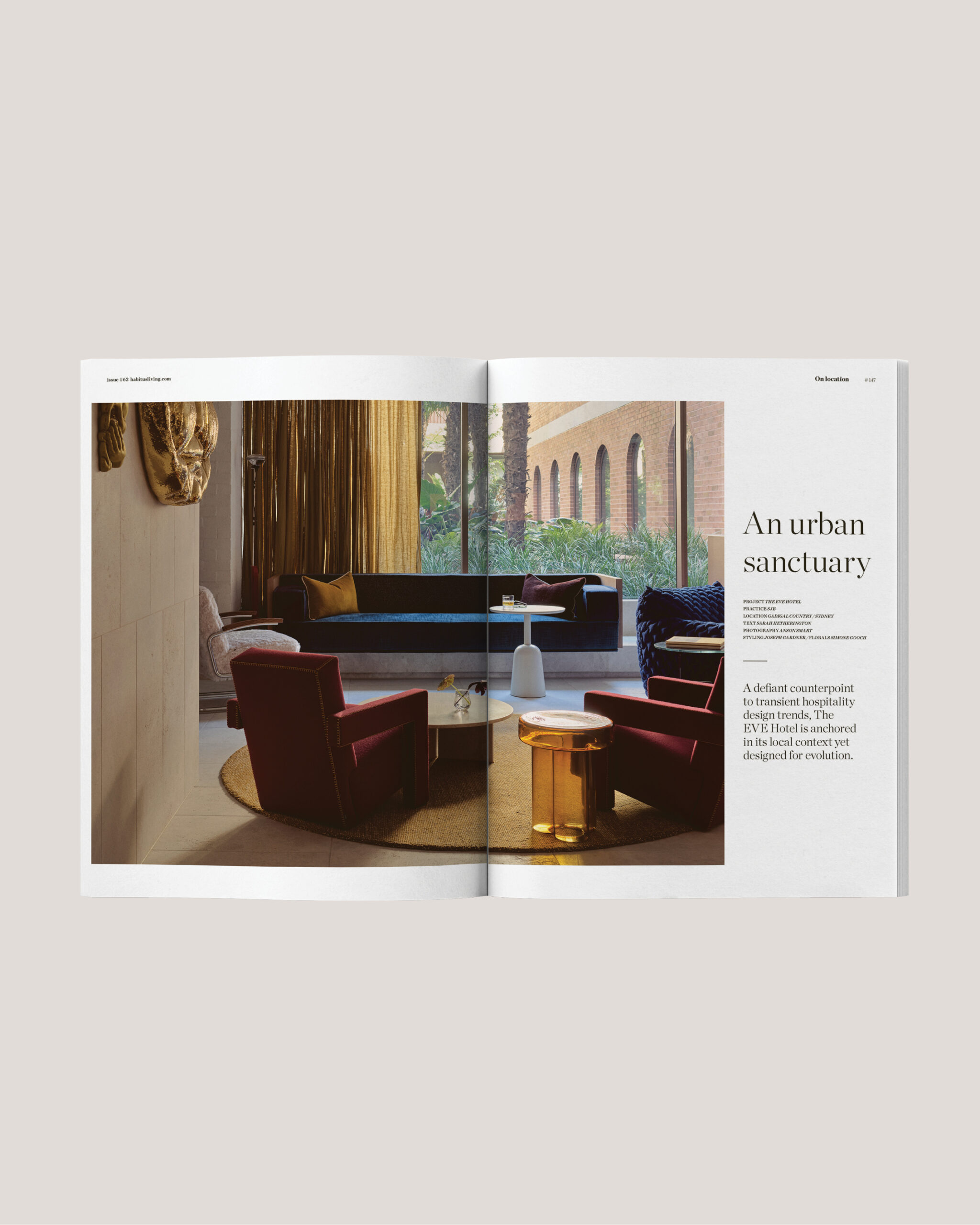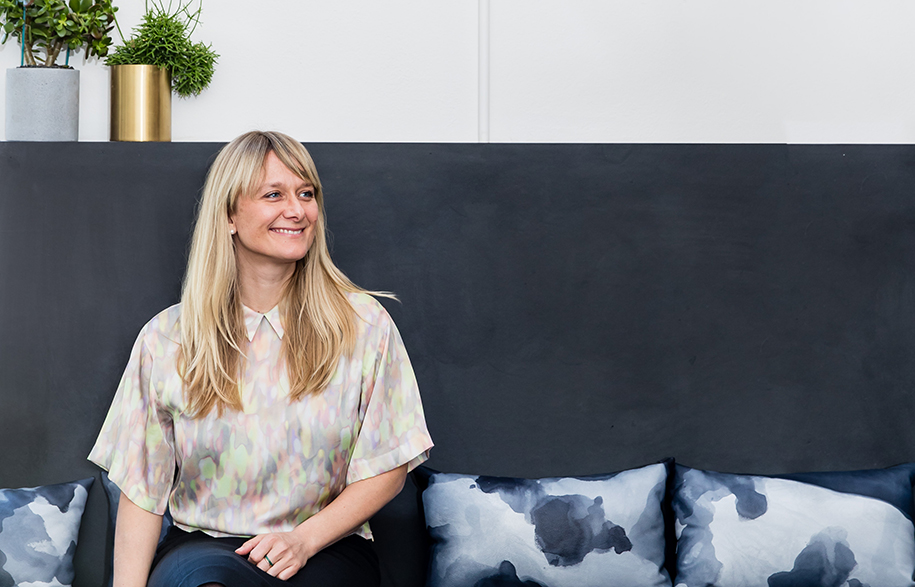At Foolscap, you’ve been enormously successful in the hospitality sector. Why do you think F&B a such a big driver of Australian interior design?
We prefer to think that we create ‘social spaces’ – not just hospitality and retail design – for a broad range of projects, and we are looking to impact other sectors outside of hospitality in a big way. Workplaces, public space and cultural projects, residential communities and mixed use precincts are benefiting from this perspective and knowledge base, and the vitality that social spaces bring to projects is becoming the focus of our work.
That said, hospitality is growing along with the massive global obsession with food and all the markets connected to food. The industry is realising that the principles and behavioural understanding that applies to traditional hospitality is ultimately universal. We’re about designing great social places where people interact – so we bring that to the table to get better results for community building and placemaking, whether its within a small footprint project or for one of the many urban precincts that we are currently working on. Hospitality in Australia does pioneer a lot of creative thinking in a really competitive business context. It’s fast-moving and our restaurants are now internationally recognised, so it’s a different food and culinary landscape we are working in.
What are the negative aspects of working in hospitality?
You get pigeon-holed quite easily when you’ve worked on a lot of hospitality projects. My background is in high end commercial built environments and our team are really diverse and we are now breaking through that mold and working on a real variety of projects at much lager scale. The continuous thread being creating places where people come together, whether it’s to work, to share ideas, live, eat, drink or socialise. It’s all about how people connect with the design at the end of the day.
Being so active in the ‘social spaces’ sector means you must deal with a lot of different developers. How do you navigate those relationships?
We place a lot of importance on our relationships with our clients. These are usually long lasting as we are in some cases working on three- to five-year projects where everyone must be on the same page, while being open to change. The success of the relationship is ultimately the success of the project, where the designer can communicate the potential to explore new ideas in design and the associated value in doing so. We can no longer rely on past models when it comes to designing these experiences, so in many cases the biggest risk is to repeat what has been done before.
Developers have a multitude of factors which affect their projects and together with Relative (relativeprojects.com), our strategic design partners, we develop design concepts and strategies around the larger projects to address these issues on many levels. This thinking helps us to understand all the opportunities and to design towards realising these. What I mean by this is, if you can develop concepts with a broad collaborative team who understand the multitude of forces, you can better guide the design process to create an end result that people will connect with, and which will stand the test of time.
Compared to other industries, hospitality attracts a great range of strong personalities and passionate people who are all about creating and inspiring people. So it’s more unique and personally invested.
Where do you see Foolscap in five years’ time?
Larger precinct scale mixed use projects that are currently in the pipeline will be finishing up, as some of these will take three to five years to be completed. Our office in Sydney will be further established and we will be looking to expand our input further afield.
Working with a greater number of inspiring local and international clients on projects where our approach will add a new perspective and value, where our impact at small and large scale can be taken to cities abroad.
More of our own partnership ventures (such as Uncle restaurant Collins St) and more of our own projects, such as Foolscap Furniture range. In five years the dream is also to be able to do more socially inspired work at scale. A major challenge for us now and in the future is to broach sustainable hospitality spaces, and this is going to entail cultural change within the organisations we are working with.
Foolscap Studio
foolscapstudio.com.au
Interview by Stephen Todd

